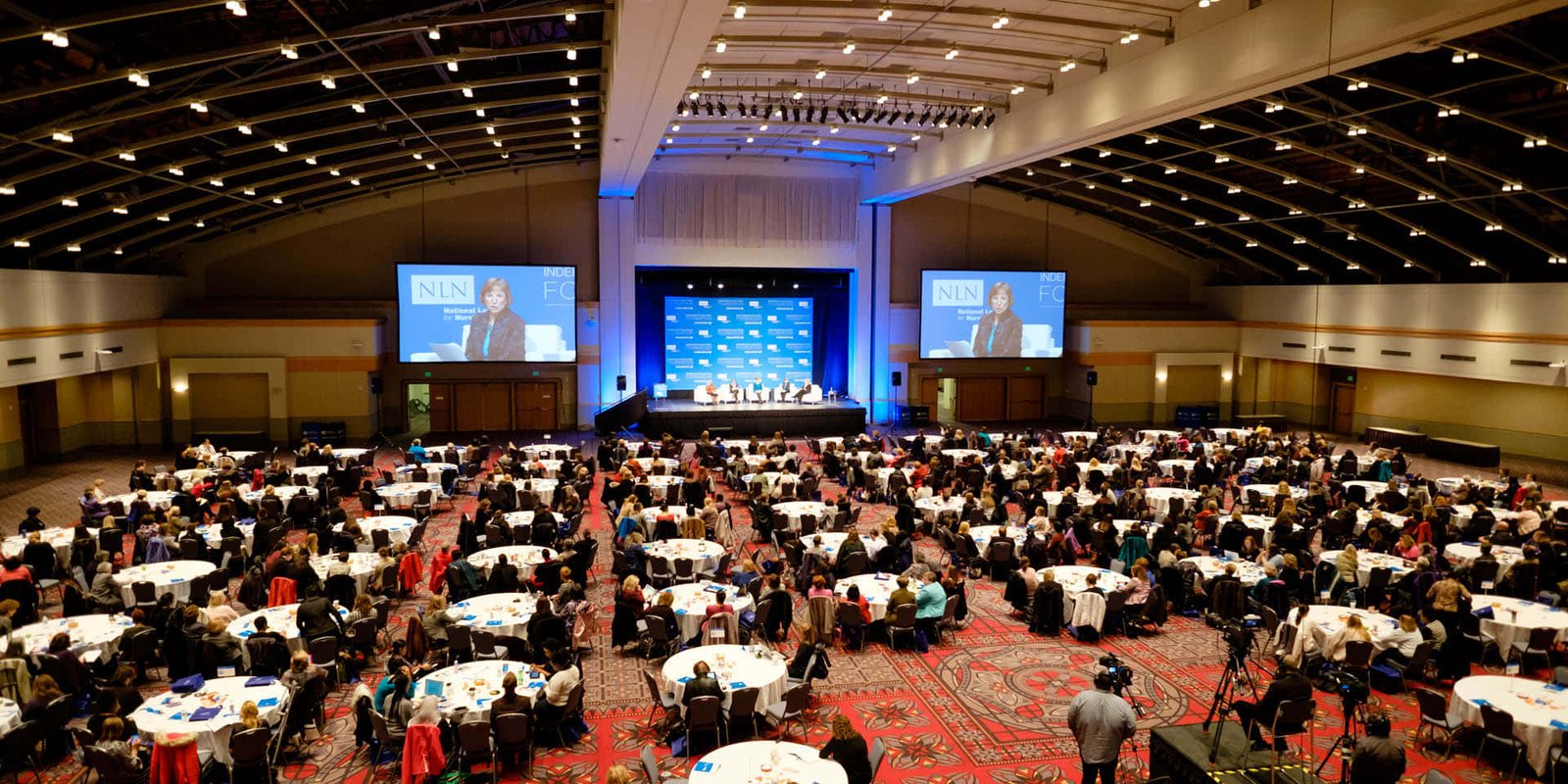
Corporate seminars have become essential tools for business growth, team development, and knowledge sharing across industries. Whether you’re organizing your first corporate seminar Dubai event or looking to improve your existing approach, proper planning makes the difference between a memorable experience and a missed opportunity.
The UAE’s business landscape continues to evolve rapidly, making corporate training seminars more valuable than ever. Companies that invest in well-structured seminars see improved employee performance, stronger team dynamics, and better business outcomes. This comprehensive guide will walk you through every aspect of planning a successful corporate seminar, from initial concept to post-event follow-up.
Before diving into the planning process, it’s important to recognize why corporate seminars matter. These events serve multiple purposes: they educate employees on new skills, introduce industry innovations, foster networking opportunities, and strengthen company culture. For businesses in Dubai and across the UAE, seminars also provide platforms for cross-cultural collaboration and knowledge exchange.
The benefits of corporate seminars for UAE businesses extend beyond immediate learning outcomes. They help organizations stay competitive in fast-moving markets, attract and retain talent, and build stronger relationships with clients and partners. Companies that regularly host or attend quality seminars often report higher employee satisfaction and improved business performance.
Every successful corporate seminar starts with clear objectives. What specific outcomes do you want to achieve? Are you introducing new products, training staff on updated procedures, or addressing industry challenges? Your goals will shape every other decision in the planning process.
Consider both immediate and long-term objectives. Immediate goals might include skills development or information sharing, while long-term objectives could focus on culture change or strategic alignment. Write down these objectives and refer back to them throughout the planning process to ensure your seminar stays on track.
Understanding your audience is crucial for seminar success. Are you targeting senior executives, middle management, or front-line employees? Will attendees come from within your organization, or will you invite external participants? The audience profile affects everything from venue selection to content development.
For Dubai corporate training seminars, consider the diverse workforce common in the region. Your audience might include people from various cultural backgrounds, experience levels, and professional specializations. This diversity can be a strength, but it requires thoughtful planning to ensure content resonates with everyone.
Realistic budgeting prevents surprises and ensures quality execution. Consider all potential costs: venue rental, catering, speaker fees, materials, technology, marketing, and staff time. Don’t forget indirect costs like employee time away from regular duties.
Timeline planning works backward from your event date. Major tasks like venue booking and speaker confirmation need several months of lead time, especially in competitive markets like Dubai. Create a detailed timeline with milestone dates and buffer time for unexpected delays.

Selecting appropriate corporate seminar venues in Dubai requires balancing multiple factors: location accessibility, capacity, technical capabilities, and budget constraints. Dubai offers numerous options, from luxury hotels to purpose-built conference centers and modern business districts.
Consider your audience’s travel patterns when choosing location. Central locations near major business districts or transportation hubs often work best. The venue should reflect your company’s image while providing necessary amenities like parking, catering facilities, and technical support.
Visit potential venues in person before making final decisions. Check room acoustics, lighting quality, temperature control, and technology capabilities. Ask about setup flexibility, as different seminar formats require different room configurations.
Content quality determines seminar value. Start with your objectives and audience analysis to create relevant, engaging material. Mix presentation formats to maintain interest: combine lectures with interactive discussions, case studies, and hands-on exercises.
When selecting corporate seminar topics Dubai businesses find valuable, focus on current industry challenges and emerging opportunities. Popular topics include digital transformation, leadership development, customer service excellence, and regulatory compliance. Keep content practical and immediately applicable.
Consider local context in your content development. Dubai’s business environment has unique characteristics, from regulatory frameworks to cultural considerations. Incorporating relevant local examples and case studies increases engagement and relevance.
Speakers can make or break your seminar. Look for experts who combine deep knowledge with strong presentation skills. Industry practitioners often connect better with audiences than pure academics, as they can share real-world experiences and practical insights.
For international speakers, plan extra time for visa processing and travel arrangements. Local speakers familiar with the UAE market often provide valuable cultural context and relevant examples. Consider a mix of internal and external speakers to balance company-specific information with outside perspectives.
Passive listening leads to poor retention and limited impact. Build engagement into every seminar element. Start with interactive registration processes that gather attendee expectations and background information. Use this data to customize content and create networking opportunities.
During the seminar, incorporate regular interaction opportunities. Q&A sessions, small group discussions, and hands-on activities keep participants engaged. Technology tools like polling applications and social media can enhance interaction, especially for larger groups.

Smooth registration processes create positive first impressions. Use professional registration platforms that handle confirmations, reminders, and updates automatically. Collect necessary information without making registration burdensome.
Communication strategy extends beyond registration. Send pre-event materials that help attendees prepare and build anticipation. Share logistics information clearly, including parking details, dress codes, and what to bring.
Operational excellence requires attention to detail. Create comprehensive checklists covering every aspect of event day execution. Assign specific responsibilities to team members and establish clear communication protocols.
Your corporate seminar checklist Dubai should include: venue setup, registration desk operation, technology testing, catering coordination, materials distribution, and contingency planning. Test all systems before the event and have backup plans for critical elements.
Consider the flow of participants throughout the venue. Clear signage, efficient registration processes, and comfortable break areas contribute to positive experiences. Pay attention to accessibility requirements and cultural considerations relevant to your diverse audience.
Event day execution tests all your preparation. Start early to ensure everything is ready before participants arrive. Maintain calm professionalism even when facing unexpected challenges, as your demeanor affects the entire atmosphere.
Monitor attendee engagement throughout the day. Be prepared to adjust pacing or format if needed. Encourage networking during breaks and meals, as relationship building often provides as much value as formal presentations.
Feedback collection shouldn’t wait until after the event ends. Use brief pulse surveys during breaks to gauge reactions and make real-time adjustments if possible. Post-event surveys should be comprehensive but not overwhelming.
Measure success against your original objectives. If the goal was skills development, plan follow-up assessments. If networking was important, track connections made and maintained. Quantitative metrics like attendance rates and satisfaction scores provide valuable data, but don’t ignore qualitative feedback about content relevance and applicability.
The seminar’s impact depends heavily on post-event follow-up. Share presentation materials, action items, and additional resources promptly. Consider creating online communities or discussion groups where participants can continue conversations started during the seminar.
Plan follow-up sessions or check-ins to reinforce key messages and assess implementation progress. This ongoing engagement demonstrates commitment to participant success and increases the likelihood of achieving long-term objectives.
When planning how to organize a corporate seminar in Dubai, several unique factors deserve attention. The city’s international business community means your audience likely includes diverse cultural backgrounds and professional experiences. Plan content and interactions that leverage this diversity rather than seeing it as a challenge.
Dubai’s climate affects venue and timing decisions. Outdoor components work better during cooler months, while summer events benefit from excellent air conditioning and covered parking. Consider religious observances and cultural holidays when scheduling, as these affect attendance and participant engagement.
The UAE’s regulatory environment may impact certain seminar topics or speaker selections. Ensure compliance with local requirements, especially for events involving professional certifications or industry-specific training.

Several pitfalls can undermine even well-intentioned seminars. Overcrowded agendas leave insufficient time for interaction and absorption. Poor venue selection creates distractions that reduce learning effectiveness. Inadequate speaker preparation leads to disjointed presentations that confuse rather than enlighten.
Technology failures cause frustration and delay. Always test equipment beforehand and have backup plans. Similarly, catering issues can overshadow otherwise excellent content. Work with reliable suppliers and confirm arrangements multiple times.
True seminar success extends beyond immediate participant satisfaction. Track behavior changes, skill improvements, and business results over time. This data helps justify future seminar investments and identifies areas for improvement.
Consider creating longitudinal studies that follow participants over several months. Document how seminar content influences decision-making, problem-solving, and professional development. This information proves valuable for future planning and demonstrates return on investment to stakeholders.
Planning successful corporate seminars requires systematic approach, attention to detail, and commitment to participant value. By following this step-by-step guide, you can create events that educate, engage, and inspire attendees while achieving your business objectives.
The investment in quality seminar planning pays dividends through improved employee performance, stronger business relationships, and enhanced company reputation. Whether you’re organizing your first Dubai corporate training seminar or refining your existing approach, remember that success comes from understanding your audience, delivering relevant content, and maintaining focus on measurable outcomes.
Corporate seminars represent opportunities to accelerate learning, build connections, and drive business growth. With proper planning and execution, your next seminar can become a catalyst for positive change within your organization and the broader business community.